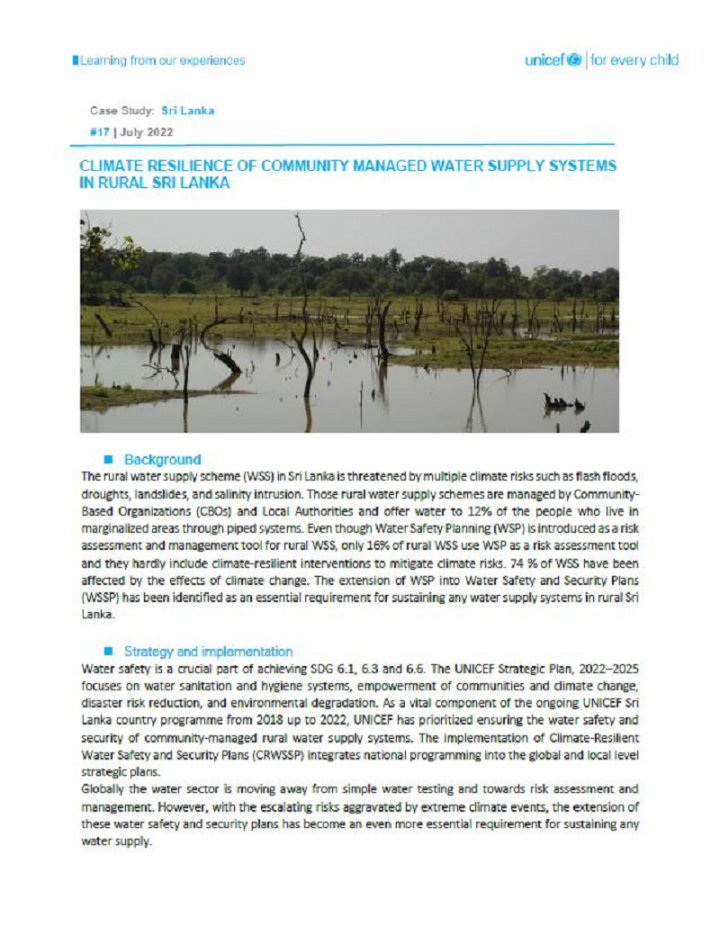CLIMATE RESILIENCE OF COMMUNITY MANAGED WATER SUPPLY SYSTEMS IN RURAL SRI LANKA
Nilusha Lakmali Patabendi Hetti Thanthri Patabendige Dona (2022)

Published in: 2022
Pages: 3
Publisher:
UNICEF
Author:
Nilusha Lakmali Patabendi Hetti Thanthri Patabendige Dona
Uploaded by:
SuSanA Admin
858 Views
17 Downloads
The rural water supply scheme (WSS) in Sri Lanka is threatened by multiple climate risks such as flash floods, droughts, landslides, and salinity intrusion. Those rural water supply schemes are managed by Community-Based Organizations (CBOs) and Local Authorities and offer water to 12% of the people who live in marginalized areas through piped systems. Even though Water Safety Planning (WSP) is introduced as a risk assessment and management tool for rural WSS, only 16% of rural WSS use WSP as a risk assessment tool and they hardly include climate-resilient interventions to mitigate climate risks. 74 % of WSS have been affected by the effects of climate change. The extension of WSP into Water Safety and Security Plans (WSSP) has been identified as an essential requirement for sustaining any water supply systems in rural Sri Lanka.
Bibliographic information
Nilusha Lakmali Patabendi Hetti Thanthri Patabendige Dona (2022). CLIMATE RESILIENCE OF COMMUNITY MANAGED WATER SUPPLY SYSTEMS IN RURAL SRI LANKA. UNICEF
Filter tags
English South Asia














